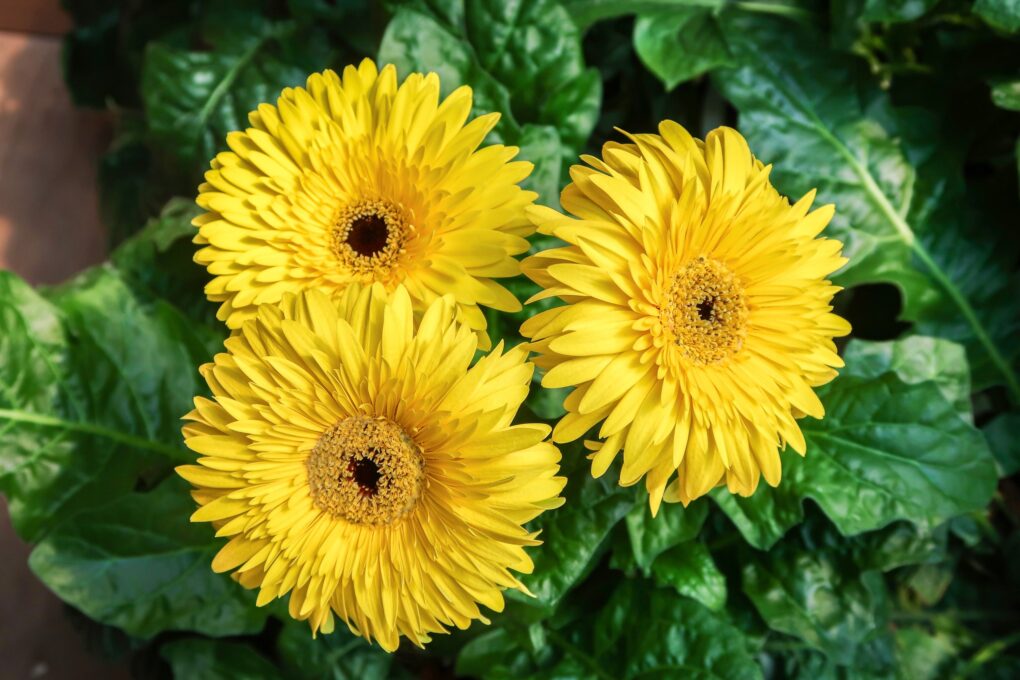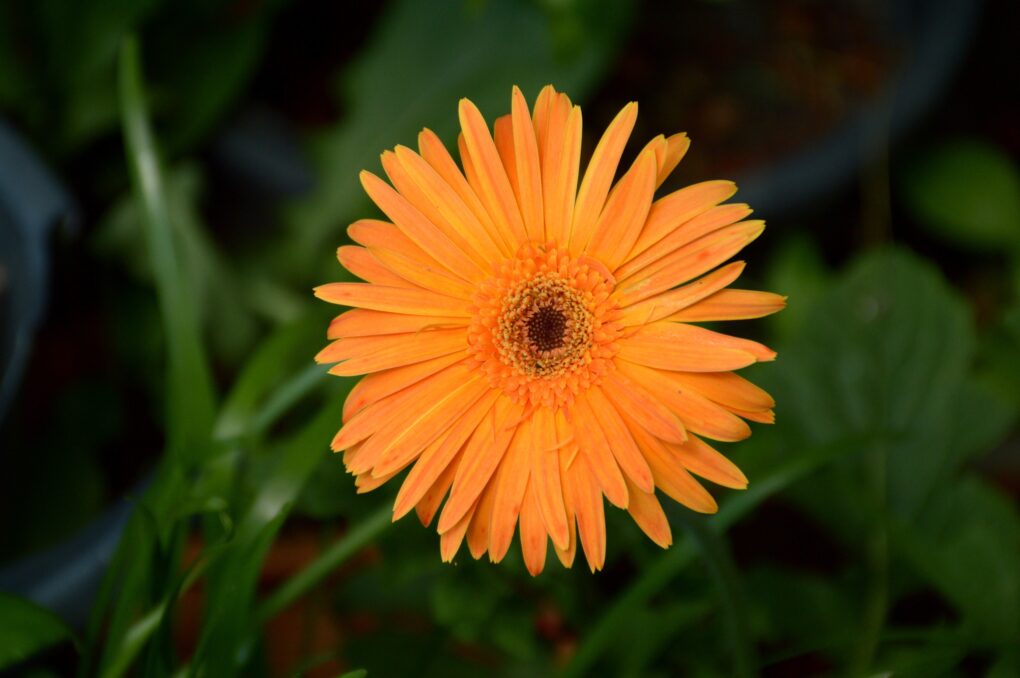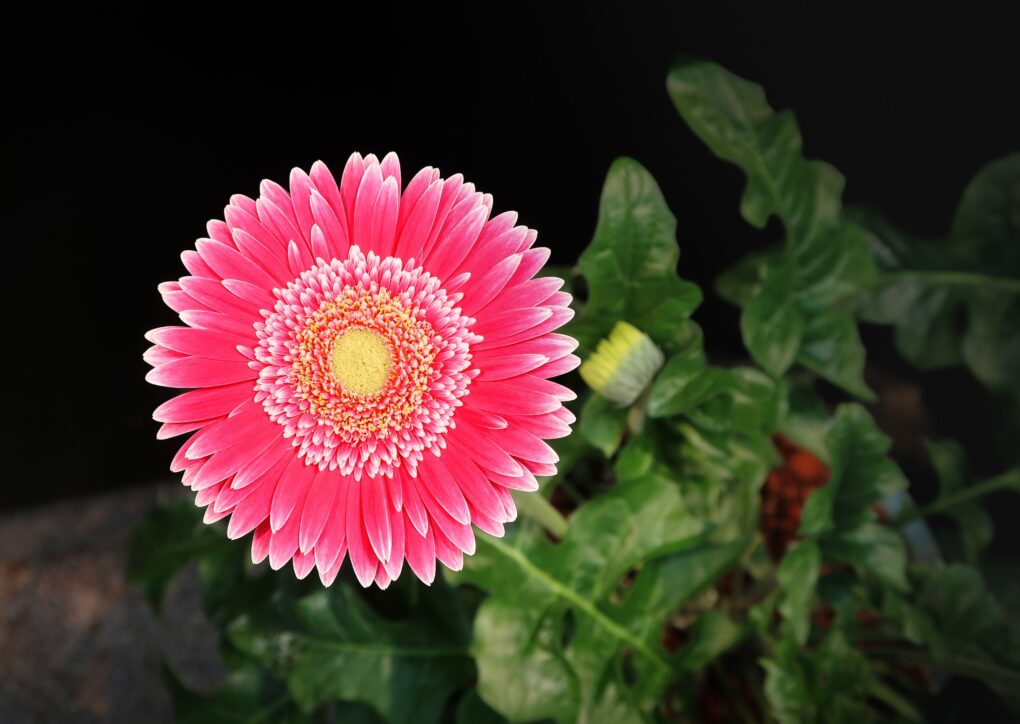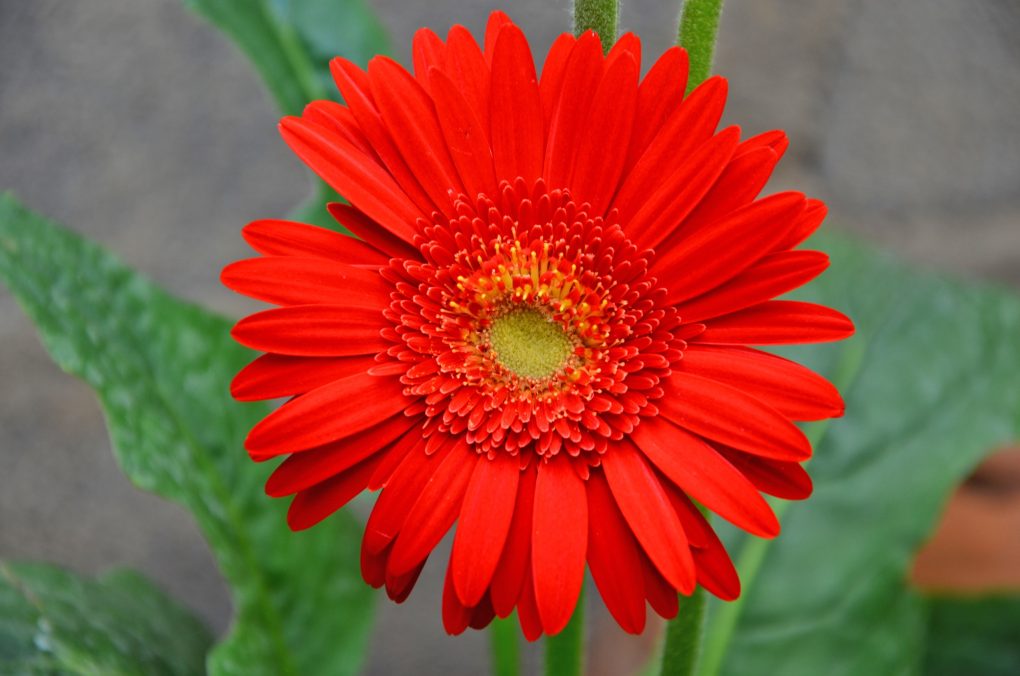What Does Gerbera Daisy Symbolize: Meanings and Significance Explained
Gerbera daisies are among the most popular and beloved flowers worldwide, known for their bright and vibrant colors, making them a popular choice for bouquets, gardens, and home decor. But beyond their beauty, gerbera daisies also have a rich symbolic meaning that dates back centuries.

Gerbera daisies are often associated with purity, innocence, and beauty. They are believed to represent the energy and rejuvenation of youth and are often given as a gift to celebrate new beginnings or milestones. In addition, the color of the gerbera daisy can also convey different meanings. For example, pink gerbera daisies are often associated with admiration and compassion, while yellow gerbera daisies symbolize friendship and joy.
Whether you want to add some color to your home, celebrate a special occasion, or appreciate the beauty of nature, gerbera daisies are a wonderful choice. With their rich symbolism and vibrant colors, they are sure to bring joy and happiness to anyone who receives them.
Table of Contents
History of Gerbera Daisy

Gerbera daisies originated in South Africa in the 19th century. Named after the German botanist Traugott Gerber, these flowers belong to the Asteraceae family and are closely related to sunflowers and daisies. Gerbera daisies come in various colors, including pink, red, yellow, orange, and white.
In the early 20th century, gerbera daisies were brought to Europe and quickly became popular due to their vibrant colors and long vase life. Today, gerbera daisies are popular for bouquets, weddings, and other special occasions.
Gerbera daisies have also been used for medicinal purposes in traditional African medicine. The roots of the plant were used to treat toothaches and the leaves were used to make a tea to treat colds and coughs.
The Symbolism of Gerbera Daisy

Gerbera daisies are known for their bright, vibrant colors and are often given as gifts to express joy, love, and appreciation. But what do these flowers symbolize beyond their cheerful appearance? Let’s look at the positive and negative symbolism associated with gerbera daisies.
Positive Symbolism
The gerbera daisy is often associated with positive emotions and is commonly used to convey happiness, joy, and gratitude. Here are some of the positive meanings associated with gerbera daisies:
● Friendship
● Purity
● Innocence
● Loyalty
● Optimism
● Energy
These positive associations make gerbera daisies a popular choice for gifts, especially for birthdays, anniversaries, and other celebratory occasions.
Negative Symbolism
While gerbera daisies are generally associated with positive emotions, they can also have negative connotations depending on the color and context. Here are some of the negative meanings associated with gerbera daisies:
● Jealousy
● Immaturity
● Superficiality
● Overly optimistic
It’s important to consider these negative associations when giving gerbera daisies as gifts, especially if the recipient is someone who may interpret the flowers differently.
Overall, gerbera daisies are a versatile flower with a range of positive and negative symbolism. Whether you’re looking to express joy, gratitude, or something else entirely, gerbera daisies can be a great choice for any occasion.
Cultural Significance of Gerbera Daisy
Gerbera daisies have been cultivated for centuries and have gained cultural significance in many societies. Here are a few examples of their cultural significance:
● In ancient Egypt, gerbera daisies were believed to symbolize closeness to nature and devotion to the sun.
● The Celts believed that gerbera daisies could lessen the sorrows and stresses of everyday life.
● In the Victorian era, gerbera daisies were given as a symbol of happiness and joy.
● In modern times, gerbera daisies have become popular for weddings and other celebrations, symbolizing purity, innocence, and beauty.
Gerbera daisies have also been used in traditional medicine in some cultures. In Chinese medicine, the flower is believed to have cooling properties and is used to treat fevers and inflammation. In Ayurvedic medicine, the flower treats digestive problems and respiratory issues.
The cultural significance of gerbera daisies varies depending on the society and time, but they are generally associated with happiness, joy, and positive energy.
Uses of Gerbera Daisy in Different Fields

Horticulture
Gerbera daisies are popular in horticulture due to their bright and bold colors. They are easy to grow and maintain, making them a favorite among gardeners. These daisies thrive in full sun, well-drained soil, and moderate temperatures.
Gerbera daisies are also used as cut flowers in the floral industry. They have a long vase life and are available in various colors, making them a popular choice for flower arrangements.
Floral Arrangements
Gerbera daisies are popular for floral arrangements due to their vibrant colors and long vase life. They are often used in bouquets, centerpieces, and other floral arrangements for weddings, birthdays, and other special occasions.
These daisies are also used in funeral arrangements to symbolize innocence and purity. White gerbera daisies are commonly used in sympathy arrangements to convey a message of comfort and hope.
Medicine
Gerbera daisies have been used in traditional medicine for centuries and are believed to have anti-inflammatory and anti-bacterial properties, making them a popular remedy for various ailments.
The extract from gerbera daisies is used in various medications, including painkillers and anti-inflammatory drugs. It is also used in skin care products due to its anti-inflammatory properties.
Cosmetics
Gerbera daisies are also used in the cosmetic industry due to their anti-inflammatory properties, and are commonly used in skin care products to reduce inflammation and redness.
Gerbera daisy extract is also used in hair care products to promote hair growth and prevent hair loss, and is believed to strengthen hair follicles and promote healthy hair growth.
